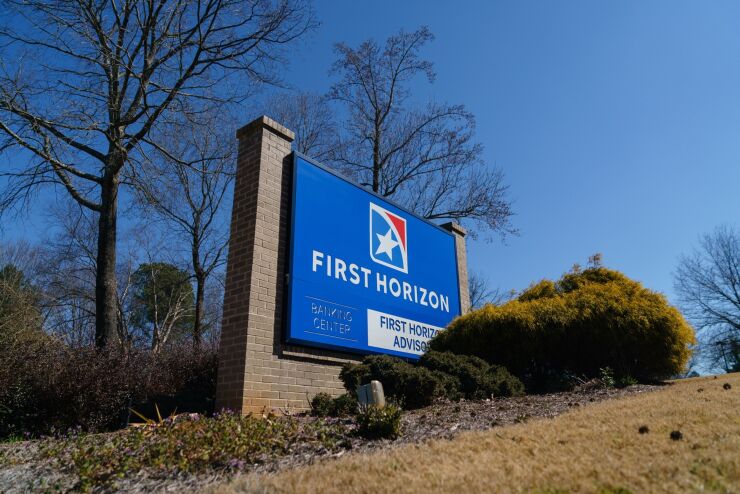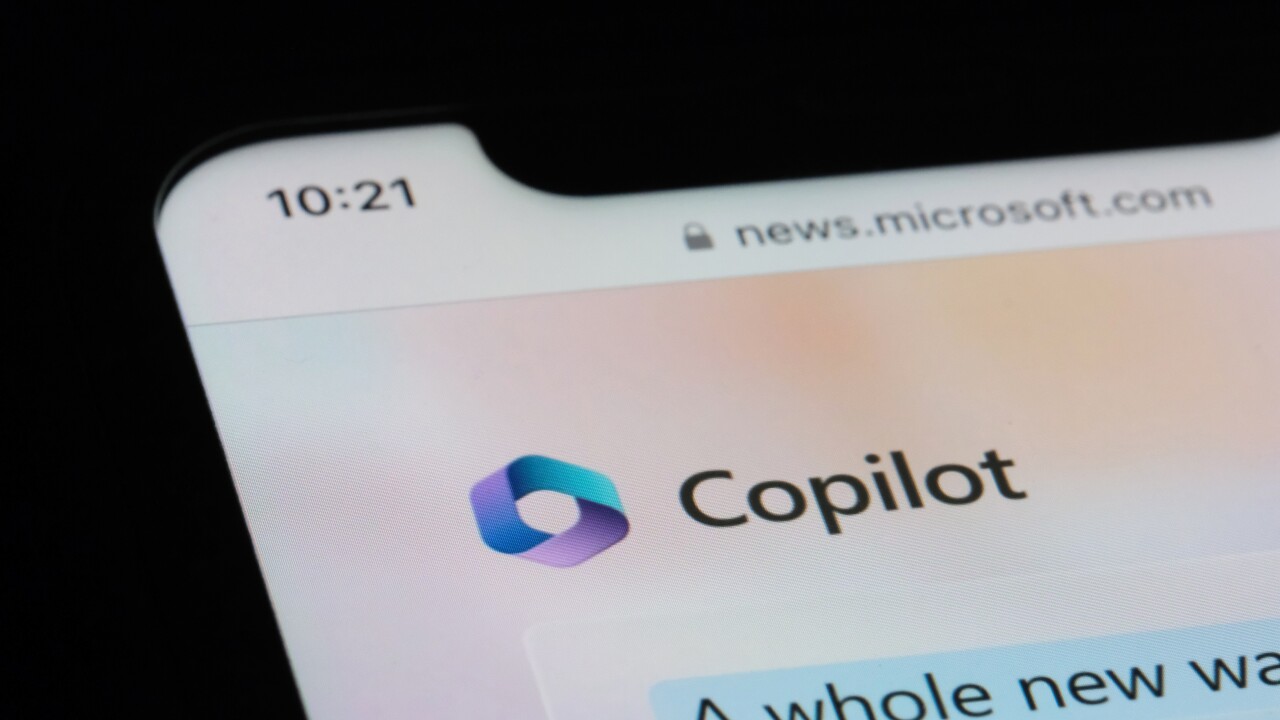Want unlimited access to top ideas and insights?

Call center agents who have to deal with angry or perplexed customers all day tend to have through-the-roof stress levels and a high turnover rate as a result. About 53% of U.S. contact center agents who describe their stress level at work as high say they will probably leave their organization within the next six months, according to CMP Research's 2023-2024 Customer Contact Executive Benchmarking Report.
Some think this is a problem artificial intelligence can fix. A well-designed algorithm could detect the signs that a call center rep is losing it and do something about it, such as send the rep a relaxing video montage of photos of their family set to music.
First Horizon is using artificial intelligence and such video "resets" to bring a state of calm and well-being to the people who talk to customers on the phone all day. Down the road, it also plans to use a large language model to
"When Cisco Webex came to us to talk to us about being part of this wellness program, we were all in on this," said Jason O'Dell, who is vice president for voice services at First Horizon Bank. "This is exactly what we need to do to get our agents into a state in which they feel that we're involved in making sure that they're satisfied and happy with their work environment."
Achieving zen in call centers
At Memphis-based First Horizon, which has $80 billion of assets, executives don't like to use the word "burnout." They prefer "agent wellness."
"At the end of the day, the mental health of our associates is key to the success of the customer experience," O'Dell said. "So agent experience and agent wellness is really the key."
First Horizon has three contact centers that handle about a million calls per year. The bank upgraded its call centers in 2021, after mergers resulted in a hodgepodge of systems. The bank chose Cisco's Webex Contact Center for its ability to scale and to handle tasks its existing software couldn't handle, and the hope that it could improve agent experience as well as customer experience, O'Dell said.
In October, Cisco launched a native Cisco AI model to predict customer satisfaction. It also trained the model to analyze agent behavior for signs of stress, taking into account survey data, time spent waiting in queues, time spent in an interactive voice response system and number of times the customer has called back. (Cisco does not retain any of this data, the company said.) It comes up with a stress score for the agent.
Across all industries, call center agents tend to work nine to ten hour shifts. At times they get shouted at by frustrated customers.
It's possible to pick up on an agent's stress levels based on the language they use in their calls and chats, said Aruna Ravichandran, senior vice president and chief marketing and customer officer at Cisco.
"Their tone tends to be a little bit harsh," she said. "The voice gets elevated. We have the ability to gauge their stress level, because we have a baseline and different people basically break at different breakpoints."
Research has shown that music can calm agents down, she said.
That's where the Thrive Resets come in. When the model determines that an agent's stress score exceeds the threshold that that particular agent can handle (based on that rep's history), the system will automatically route the call to another agent or give the agent a Thrive Reset, a montage of vacation and family photos set to music, with inspirational quotes floated at the top and breathing bubbles at the bottom telling the agent to inhale and exhale.
The videos are produced by Ariana Huffington's company, Thrive Global. Thrive also offers Resets focused on stretching, gratitude, mindfulness and nature.
At First Horizon, agents choose their own photos and songs for their resets.
"I may want to listen to Grunge rock or I may want to listen to a country song, but having the ability to customize, I'm excited about that part," O'Dell said.
Microsoft, Google, Salesforce, ServiceNow, Blend, Q2 and Intuit are among the software companies that offer copilots. Here's why banks are taking notice.
First Horizon started with a small pilot with 28 agents and two supervisors using the AI-prompted resets for nine weeks. It conducted A/B tests – one week an agent would be on the system, the next week he would be off. The bank saw a 13% reduction in burnout levels, based on surveys of the agents, a fourfold improvement in handle times and 2% improvement in customer satisfaction scores. The 2% improvement may sound small, O'Dell acknowledged, but baseline customer satisfaction scores tend to be high. The bank declined to share raw numbers.
In a second trial, 160 agents and 14 supervisors used the system for six weeks. This time, the bank saw a 20% reduction in burnout levels, average call handle time improved by 36 seconds and customer satisfaction scores rose from 4.8 to 4.9, on a scale of one to five.
"I think this is a great idea," said Ryan Boyk, tech advisor at C3 Technology Advisors, who is not connected to this project. The videos can remind people of why they are working, he said. "I have pictures of my family all over my office and desk," he said. Technologies like this combined with positive real-life relationships with supervisors, managers and co-workers can lower agent stress and turnover.
In March, the bank plans to roll this out to all 3,000 customer service agents.
"They're going to get this one-minute break whenever we feel like that stress level has skyrocketed above the threshold," O'Dell said.
Synchrony Bank in Stamford, which piloted Thrive resets last year embedded in an Intradiem workforce management system, has also seen promising results.
A survey of its agents found that 92% feel more effective on calls after receiving a Thrive Reset and 78% would rather receive a 60-second Thrive Reset than have the time back. The bank plans to roll out Thrive Resets to all of its customer service associates in the coming months, a Synchrony spokeswoman said.
Future plans for call center AI
The future of customer service at banks is likely to not involve nearly as many human agents and will probably be even more AI-enabled. Even now, banks often route customers to self-service options when they dial a call center.
Today, about 85% to 95% of customer calls that First Horizon fields are handled in a self-service manner within the interactive voice response, O'Dell said.
First Horizon plans to roll out a conversational interactive voice response system by the end of the year. Customers won't have to push buttons on their phone, and they will get to what they need faster, he said.
The bank is also interested in AI models Cisco is developing to generate call summaries.
"That is tremendous to help speed up agents so they could do less work and have more information at their fingertips," O'Dell said.
First Horizon Bank has a committee from multiple lines of businesses looking at artificial intelligence products.
"Like most institutions, everybody's watching the legality of everything and where the data's at, what the data is being used for, what happens to the models themselves," O'Dell said. "We're stressing our agent experience and customer experience because that virtual banker could be the only banking person that they ever talk to because they don't go into a branch. So you have to build a relationship somehow."






